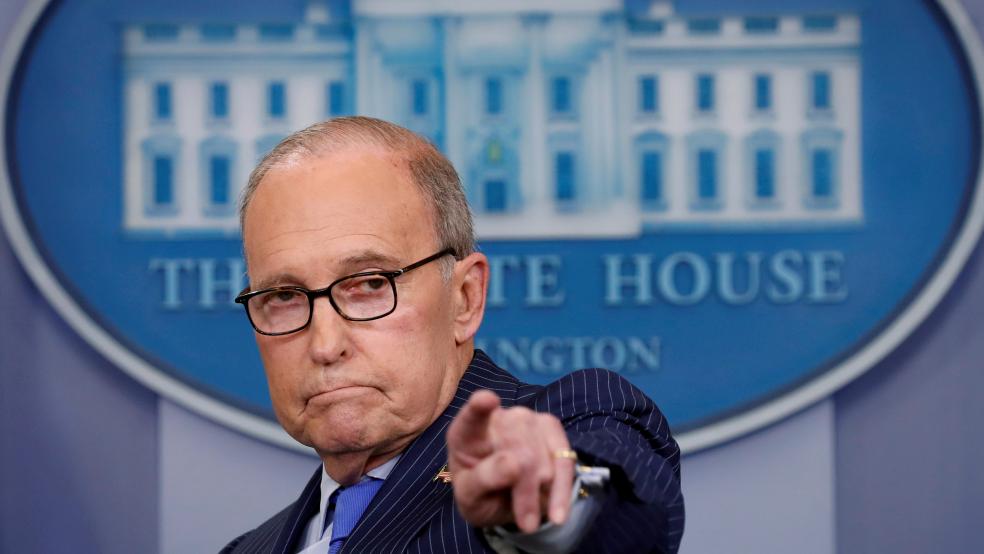Larry Kudlow, President Trump’s top economic adviser, said on the Fox Business Network Friday morning that the federal budget deficit is falling “rapidly.” In response to a Maria Bartiromo question about the outlook for economic growth and forecasters who say we might be heading for a recession in 2020, the director of the White House National Economic Council said tax revenues have been boosted enormously. “As the economy gears up, more people working, better jobs and careers, those revenues come rolling in and the deficit — which was one of the other criticisms — is coming down, and it’s coming down rapidly,” Kudlow said.
.@larry_kudlow: "The deficit... is coming down, and it's coming down rapidly. Growth solves a lot of problems." pic.twitter.com/H375h7rV0a
— FOX Business (@FoxBusiness) June 29, 2018
Fact check: No, it is not.
The Treasury Department reported earlier this month that the deficit over the first eight months of fiscal 2018 totaled $532.2 billion – an increase of $99.4 billion, or 23 percent, from the same period last year. Government revenues during that time were indeed higher, totaling $2.22 trillion, up 2.6 percent from the prior year, but outlays rose even faster, coming to $2.76 trillion, up 6 percent year over year.
In a 30-year outlook released this week, the nonpartisan Congressional Budget Office projected that the deficit for fiscal year 2018 would be $793 billion, a small decrease from the $804 billion it projected in April. And the deficit for 2019 is now projected to be $973 billion, compared to $981 in CBO’s April report. Maybe that’s what Kudlow was referring to.
But the most recent figures still represent a huge jump from the $665 billion deficit recorded last year. Even the most cynical Washington spinmeister should know better than to call the $128 billion increase projected for 2018 — a rise of nearly 20 percent — a decline. The CBO report shows the deficit is rising, both in dollar terms and as a share of the economy. And CBO still sees the deficit continuing to rise over time, topping $1 trillion a year in 2020 and reaching $1.5 trillion by 2028.
In its latest report, CBO also said that the Republican tax law passed last year would add $1.27 trillion to the deficit through 2028, even after factoring in the economic growth effects of the law. It projected that, if current laws remain unchanged, the deficit will rise from 3.9 percent of GDP this year to 9.5 percent in 2048.
Update, 5 p.m.: The Wall Street Journal’s Nick Timiraos got some clarification from Kudlow in an interview later in the day: “Reached by phone, Kudlow told me his comment was meant prospectively. It reflects his view not that deficits have come down sharply, but that they will be coming down as growth rises ‘faster than virtually any forecasters think.’”
For some context there, the Committee for a Responsible Federal Budget recently estimated that fully balancing the budget through higher economic growth alone would take average growth of 4.8 percent over the next decade, or 5.9 percent if Congress extends temporary tax cuts and spending increases.





